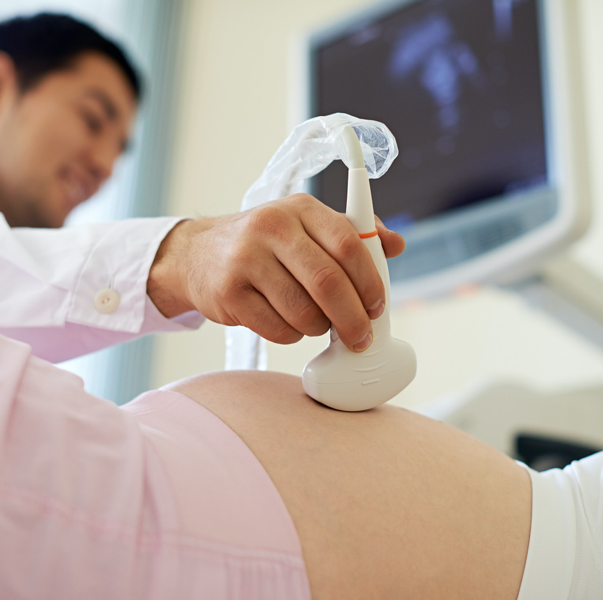- Fast results
- 4,000+ locations
- 4.8 star rating
Need Help? (888) GET LABS



So, you found out you’re pregnant.
You’re probably thinking about how to make sure that everything goes great with you and your baby. In that case, you should pay more attention to how your first trimester pans out.
The first trimester covers the first three months of your pregnancy. It is a vital stage and kicks off the fundamental development of the fetus.
There are several complications during the first trimester that can endanger the developing fetus. In addition, pregnant women are also at risk of miscarriage, hyperemesis gravidarum, and heightened early pregnancy symptoms.
Hence, knowing what good and bad choices are for you and your baby’s health can significantly affect the gestational process.
Nonetheless, you can ease up your worries as there are practical ways you can do from your end to guarantee a safe and healthy pregnancy.
For starters, monitoring your hormones through a Prenatal Hormone Panel can help you keep track of any potential issue.
Read on and find out what else you can do to avoid any complications during your first trimester.

During the first trimester, the most critical process of gestation occurs.
You probably found out about your pregnancy through a pregnancy test.
Although the urine test is a convenient and affordable method to detect pregnancy, a quantitative pregnancy blood test remains the most accurate. Either way, a woman typically finds out about her pregnancy two weeks after ovulation or around the time when they miss their period.
However, there is a chance that even before the positive sign showed up in the pregnancy stick, there are already several early pregnancy symptoms like the following:
Some women fail to see or associate these symptoms with pregnancy as they are closely similar to symptoms of premenstrual syndrome (PMS).
After ovulation, hormonal levels, specifically progesterone, estrogen, and serotonin, begin to change.
For example, estrogen drops rapidly but increases again, and progesterone starts to rise and dominate the second half of your menstrual cycle. This stage is referred to as the luteal phase. As a result, you will feel several physical changes. It could even affect your mood.
The luteal phase, in general, prepares your uterus to receive a growing embryo.
After the egg cell is released during ovulation, the ovary is left with a mass of cells that acts as a temporary endocrine gland releasing progesterone.
On the other hand, estrogen sharply goes down but gradually elevates to prepare the uterus for implantation.
Once the fertilized egg cell or embryo attaches to the uterine wall, the placenta begins to grow, and human chorionic gonadotrophin (hCG) is released. hCG is the marker for both quantitative and qualitative pregnancy tests.
The first trimester is considered the most crucial of the pregnancy stages.
After the embryo attaches to the uterus, it grows rapidly day by day. Along with its development, the placenta releases more hCG. That is why taking a pregnancy test a week or two after your missed period is more accurate than doing it earlier.
The fetus gets nourishment through the placenta, where nutrients, water, and oxygen are delivered through the umbilical cord.
Organs begin to form during the first trimester starting with the brain, spinal cord, and nerves. The heart also starts to develop, beating for the first time. Likewise, the facial features begin to form along with the arms and legs.
Fingers and toes will emerge towards the end of the second month. Before the first trimester ends, the sex organs start to form.
As the development becomes rapid, the fetus can be prone to congenital disabilities when exposed to teratogens.
Human teratogens are any substance or agent that can change the physical structure of a fetus. Examples of teratogens are nicotine, alcohol, drugs and certain medications, chemicals, and some infections.
While birth defects are the most common consequences of exposure to human teratogens, other effects include growth retardation, malformations, and even death.

To avoid complications and congenital disabilities, make sure to follow these recommended ways.
See your doctor as soon as you get a positive result in your pregnancy test. Your first few consultations will include a physical exam along with urine and prenatal blood tests.
Your doctor will perform a pelvic exam, breast exam, and Pap test. Moreover, you also be screened for health conditions like diabetes, anemia, hepatitis, STDs, etc.
Pregnancy requires more nutrients as the fetus in your womb rapidly grows. Therefore, taking prenatal vitamins is a crucial part of your first trimester.
Your obstetrician will prescribe the following prenatal supplements:
Folate and its synthetic form, folic acid, helps in the development of the neural tube or the early form of the spinal cord and brain.
While folic acid helps a lot in this growth, including natural food sources of folates is also beneficial for you and your fetus’ health. So include foods like legumes, leafy greens, eggs, citrus fruits, nuts, seeds, and fortified grains in your prenatal diet.
Pregnant women are advised to secure a well-balanced diet. And it’s often non-negotiable. Processed foods and certain types of cuisine cause harm to the fetus and your overall wellness.
It is best to stick to fruits, vegetables, and lean meat. This way, you get the nutrients required for you and your baby.
Pregnancy may sound delicate, but if everything is normal, you can still keep an active lifestyle. Exercise is one thing that pregnant women should never neglect.
The CDC recommends 150 minutes of moderate-intensity exercise every week. Not only will it keep you healthy, but your mood will also improve, counteracting the adverse mental health impact of hormonal changes during pregnancy.
When you get pregnant, it’s normal that you feel tired and sleepy all the time. This is expected as your hormones change, and your body needs more energy to support the baby’s growth.
Needless to say, sleep is a vital part of this condition. If you fight off the desire to hit the bed, it could make your pregnancy even more uncomfortable.
Although you can sleep in any position, unlike during the second trimester when your belly has already grown, it is still recommended to start sleeping on the side.
Your water intake affects your overall health during pregnancy. According to a 2017 study, increased fluid consumption can reduce the risk for congenital disabilities like spina bifida and congenital heart defects.
Moreover, staying hydrated keeps maternal health at its optimum level. It improves digestion and circulation. Likewise, it also helps in increasing blood volume and the formation of amniotic fluid and new tissues.
Aside from your physical health, you should also be concerned about your mental health.
Stress has a lot of adverse effects on an average person, let alone a pregnant woman. It increases your blood pressure and disrupts your hormones and immune responses. As a result, it can cause problems in both fetal and maternal health.
Avoid external triggers for prenatal stress and try to find relaxing activities not just during the first trimester but throughout your entire pregnancy.
Pregnancy puts up several restrictions – and for a good reason too. As mentioned earlier, teratogens are harmful to fetal growth and maternal health. In addition, exposure to these agents increases the risk of birth defects and even death.
If you are a habitual alcohol drinker, pregnancy should put a stop to that. Drinking alcohol does not only put your baby at risk for malformations, but it can also trigger a miscarriage.
In cases where you carry a full term even with continuous alcohol consumption, the baby will likely be born prematurely or with low birthweight.
Moreover, there is also the risk for conditions like fetal alcohol spectrum disorders (FASDs).
Smoking cigarettes and other tobacco products can cause tissue damage in the fetus. Even e-cigarettes can pose the same threat.
According to the CDC, smoking is discouraged even before you get pregnant as it has an adverse impact on fertility.
The nicotine, carbon monoxide, and other harmful substances do not simply go to your lungs. Instead, it can be transferred to the fetus.
If you don’t quit smoking during the first trimester, then you are putting your baby at risk of stillbirth, low birth weight, defects and malformation, and even sudden infant death syndrome (SIDS).
Recreational drugs are already dangerous for anyone’s health. If you’re pregnant, the effects are even more detrimental.
Aside from the physical defects, there is also an adverse impact on the baby’s psychological state, leading to behavioral problems during childhood and adolescence.
For example, cocaine abuse during pregnancy can lead to poor cognitive development affecting memory, learning ability, and perceptual reasoning. It could also lead to preeclampsia and placental infarction.
The effects of caffeine on pregnant women are up for debate.
Early research suggested that caffeine should be treated in part with nicotine and drugs. However, the latest findings disassociate caffeine intake at low amounts with grave fetal development issues.
However, since the data remains insufficient, it is best to treat caffeine as a harmful substance for you and your baby. With that, you should limit drinking caffeinated beverages to about 12 oz containing less than 200 mg of caffeine a day.
Raw or undercooked meat and fish can harbor different parasites dangerous to your body.
One infection that all pregnant women should be cautious of is toxoplasmosis. This condition is caused by the infection of a parasite called Toxoplasma gondii, which can be found in undercooked contaminated meat and cat feces.
Once you contract the parasite, the infection can be passed on to the fetus resulting in miscarriage, premature birth, and stillbirth.
Babies born with this infection can also develop damages to the liver, eyes, and other organs.
Consuming processed meat like deli meats may increase your risk for listeriosis. Moreover, the same condition can be developed if you drink unpasteurized milk or consume similar dairy products.
Listeriosis can be developed if you get the bacterium Listeria monocytogenes found when the products mentioned earlier are contaminated.
The CDC reports that pregnant women are ten times more likely to contract Listeria infection.
Although the symptoms may appear mild with the mother, the baby could suffer grave consequences. The infection may trigger life-threatening conditions days after getting born.
Moreover, there is also the likelihood of stillbirth or even fetal death while still inside the womb.
Toxoplasmosis can be contracted through cat feces. Hence, it makes perfect sense to stay away from the cat litter if you’re pregnant. Instead, ask someone else to clean them and make sure you never have contact with the cat’s stool.
Some fish can have higher mercury content than others. Mercury is a naturally occurring element absorbed and taken in by fish in the seas and oceans.
A growing fetus is sensitive to mercury. Therefore, if a pregnant woman consumes fish high in mercury and the element accumulates in the bloodstream, it can be transferred to the fetus.
As a result, your baby will suffer from neurological damage, which will have lasting effects specifically on their neurodevelopment and cognition.
Here are fish you should avoid once your first-trimester kick in: swordfish, mackerel, tilefish, shark, ray, Southern bluefin tuna, and barramundi.
What you eat, drink, or consume affects you and your baby. That may be general knowledge, but not everyone is fully aware of how serious it would be when you make the wrong choice.
To guarantee a healthy pregnancy, make sure that your first trimester kicks off with good practices.
Cross out habits that are detrimental to your pregnancy and the baby’s gestation.
Always consult with your doctor and take the necessary tests.
Caring more about your health is an excellent first step to care for the growing fetus in your womb. So, take the steps needed to keep your physical and mental health on top of the game.


We now offer pharmacy discounts through our PersonalabsRx platform.
We now offer pharmacy discounts through our PersonalabsRx platform.